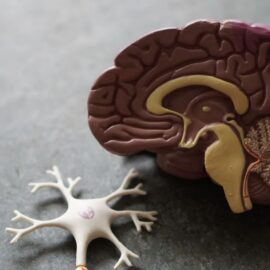

This article is an excerpt from the Shortform book guide to "Learned Optimism" by Martin E. P. Seligman. Shortform has the world's best summaries and analyses of books you should be reading.
Like this article? Sign up for a free trial here.
How are culture and depression connected? Which cultural influences predispose you to depression?
According to Martin Seligman’s studies in psychology, modern culture has primed you to be at risk of developing depression. Seligman advocates for overcoming cultural pessimism and embracing optimism while keeping a balanced (realist) perspective.
Read on to learn why culture and depression are so closely connected, according to Seligman.
Culture and Depression: An Epidemic of Pessimism
People end up trapped in a learned helplessness mindset as a result of modern culture’s overemphasis on personal achievement and self-esteem. Psychologist Martin Seligman wants us to cultivate an optimistic mindset to break the cycle that feeds into culture and depression.
(Shortform note: Seligman uses “pessimism” interchangeably with “learned helplessness,” and our guide will do the same. This is because learned helplessness is, by nature, a pessimistic mindset—it’s the belief that bad things will happen and there’s nothing you can do about it.)
Why Culture and Depression Are Inseparable
Seligman says that the modern epidemic of culture and depression is the result of the modern focus on the self. Society today is all about the individual, with emphasis on personal experiences and personal achievements. (Seligman calls this phenomenon the maximal self.)
Going hand in hand with this focus on the self is pressure from society to have high self-esteem—to feel good about yourself. Any number of self-help gurus will tell you that confidence and self-esteem are the keys to success in life. However, Seligman says that self-esteem is the result of success, not the cause of it. In fact, unearned self-esteem (in other words, narcissism) can lead to criminal behavior and violence—attempts to force the world to give you what you think you deserve.
Furthermore, culture and depression are related because of the modern emphasis on self-esteem, as a result, people who don’t have high self-esteem feel as though they’re somehow failing. Naturally, that feeling drives their self-esteem even lower.

———End of Preview———
Like what you just read? Read the rest of the world's best book summary and analysis of Martin E. P. Seligman's "Learned Optimism" at Shortform.
Here's what you'll find in our full Learned Optimism summary:
- How to break out of a pessimistic, powerless mindset
- How to develop a mindset of empowerment, optimism, and confidence
- How to balance your optimism with realism






